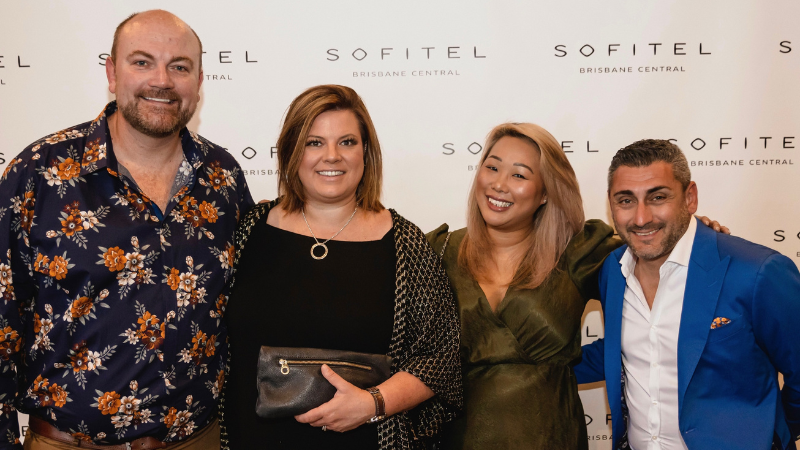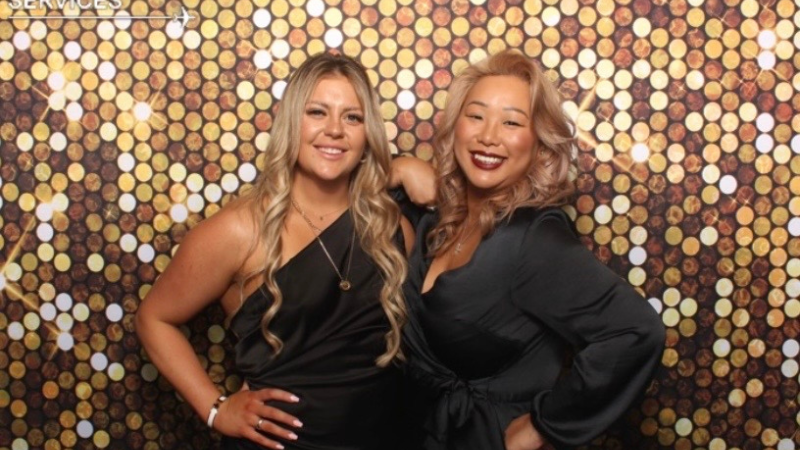After a two year hiatus, Ausfilm Week was back in 2022 bigger and better than ever. Sweeping into Tinseltown in October, the Ausfilm delegation was the toast of the town in Los Angeles as a range of films sector businesses spruiked their talents to the biggest studios in the United States.
Linh draws on her inner strength
As Head of Supply for Stage and Screen, Linh is no stranger to making big decisions. But after learning she had a gene mutation that put her at extremely high risk of developing breast cancer, she had to face life changing choices of her own and discovered a powerful reservoir of inner strength.

When Linh’s mother was diagnosed with breast cancer in 2015, she had no idea that it would be a turning point in her own life as well. Linh was living in the UK and came home to support her mother through treatment. “Once she was in remission, the doctors decided to conduct gene testing to see if the cancer was directly related to a gene mutation or just bad luck.” BRCA1 and BRCA2 are the most common inherited gene mutations that greatly increase the risk of breast cancer and can be inherited from either parent.
Soon after finding out that their mother was BRCA1 positive, Linh and her three siblings were tested. “There’s a 50% chance of inheriting the gene and our family is textbook; two of us have it and the other two don’t.” With the BRCA1 gene mutation, Linh has a 70% chance of developing breast cancer in her lifetime. For the average woman, that figure is closer to 12%. “I could stick my head in the sand now and ignore this, but the reality is if I live 10 lives, I will get cancer in seven of them,” she says.

So in 2020, at the age of 33, Linh made the decision to add her name to the waitlist to undergo a prophylactic double mastectomy. Due to the impacts of COVID, she has been waiting for over two years, with the elective surgery now scheduled to take place towards the middle of the year at the Peter MacCallum Cancer Institute in Melbourne. The complete removal of all breast tissue will reduce her risk of developing breast cancer to around 4%, well below that of the general population. She won’t even need to have regular mammograms until after 55. It is major surgery, which also includes a breast reconstruction, but Linh remains upbeat. “This is difficult and thought-provoking stuff,” she says. “But it’s nothing compared to going through chemotherapy and radiation.”

Regrettably, the BRCA1 gene mutation also makes it more likely that Linh will develop ovarian cancer in the future. There is currently no test to diagnose ovarian cancer and the fatality rate is high: of women who are diagnosed with it, less than 50% will still be alive five years later. “My doctors strongly recommended that I have my ovaries and fallopian tubes removed at age 40, so that’s what we are working towards now,” says Linh. She is currently undergoing fertility treatment to freeze her eggs. Removing her ovaries will also put her into early menopause, something she is not looking forward to. “As confronting as the situation is, I have to focus on the fact that I’m currently not sick but there is a good chance I will be in the future. So I have to take steps to minimise the impact of BRCA1 while I’m still young and healthy.”

Linh is incredibly pragmatic about a process that many would find terrifying. “You don’t realise how strong you are until you have to be.” She is also grateful for the support she has received from Stage and Screen. “Without hybrid working or flexibility to go to appointments, I would have already used all my sick leave,” Linh says. “When I told my managers I would have to be out for at least two weeks for the surgery, and with only two weeks’ notice, they didn’t bat an eye. Their response was ‘just tell us what you need and we’ll make it happen’.” By telling her story, Linh hopes she can offer reassurance for others. “One in 400 women are impacted by the BRCA mutation, so there could be many more working at FCTG. It’s good for them to know that they’ll be supported.”


